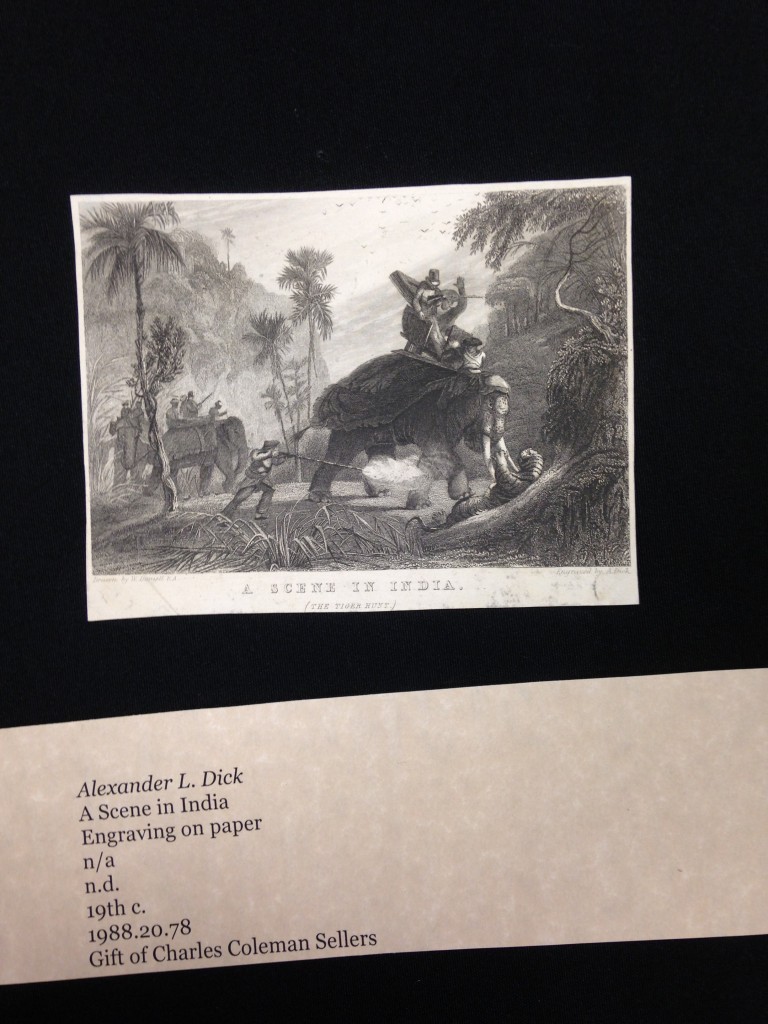Beside being a book for children, Lewis Carroll’s Alice’s Adventure in Wonderland can also be read as an implicit reference to exoticism. At the time the novel was published (1865), in fact, such a theme was particularly topical, due to the English empire’s expansionism towards far and unexplored places, such as Africa and India.
By adopting such a lens in reading the novel, the underground world that Alice encounters is a metaphor for the other, for the exotic, for the remote reality that scares the English conqueror and thus needs to be codified and explained through familiar means. In this particular case, it is the fantasy to fulfill such a duty. Alice becomes then the English soldier exploring a new world and its new creatures, and making her experience understandable to the rest of the world through literary means which make the unfamiliar (the exotic) familiar ( that is, available to everyone, even if it is far away). At the end of the novel, Alice wakes up and discovers it was all of a dream, but as soon as she runs off, her sister is ready to experience the same dream she just had. Two implications can be drawn from this conclusion. Firstly, that English colonialism is predestined to last as little time as the time of a dream, for a variety of reasons, incomprehension of the exotic individual and in-hospitality of the exotic place being the two main ones. As soon as one soldier (or population or country) walks away, however, there is another one ready to step in. Secondly, that the exotic individual does not want any foreign invasion. We can find examples of these points all throughout the novel, when Alice is continuously changing in shape to fit in specific places and situations in her underground journey, as to to say that her ‘normal’ shape is unsuitable to such a world. What is more, a clear allusion to the unwillingness of the local people to have a colonizer clearly comes from the scene at the tea party. Here, when the creatures see Alice coming, they immediately cry out:”No room!No room!”(53), and soon after March Hare tells her:”It wasn’t very civil of you to sit down without being invited”(53). This is a clear reference to the English invaders craving for new territories to take over and new people to colonize.
By adopting this particular point of view, Alice in Wonderland is an attempt to codify the unfamiliar and exotic through the eye of a child and through the familiar means of fantasy. In other cases, the exotic individual was seen as a threat to eliminate in order to take over his territories.  This is particularly true in Alexander L.Dick’s painting A scene in India, where the tiger stands for the exotic threat that the conquerors are trying to kill to have full control over its territory. This time the representation of the exotic individual is more realistic but at the same time unrealistic, since he is dis-humanized and compared to an animal. There is no willingness to understand and make the encounter with the exotic intelligible to others here, neither any sign of fear of such an encounter. There is just the desire of the conquest.
This is particularly true in Alexander L.Dick’s painting A scene in India, where the tiger stands for the exotic threat that the conquerors are trying to kill to have full control over its territory. This time the representation of the exotic individual is more realistic but at the same time unrealistic, since he is dis-humanized and compared to an animal. There is no willingness to understand and make the encounter with the exotic intelligible to others here, neither any sign of fear of such an encounter. There is just the desire of the conquest.
I agree with your observations about Alice symbolizing a colonizer, and her intrusion in Wonderland shows that the inhabitants reject her, and your comparison with the image is really interesting. However, I am questioning your statement that English colonialism is predestined to last a short time – historically, English colonialism lasted a very long time, and its effect can be seen today (racism, civil wars…). Perhaps Carroll rather shows the tension between the colonizers, and Alice’s growth at the end of the novel shows how she feels superior to those in Wonderland, similar to the English in their colonies?